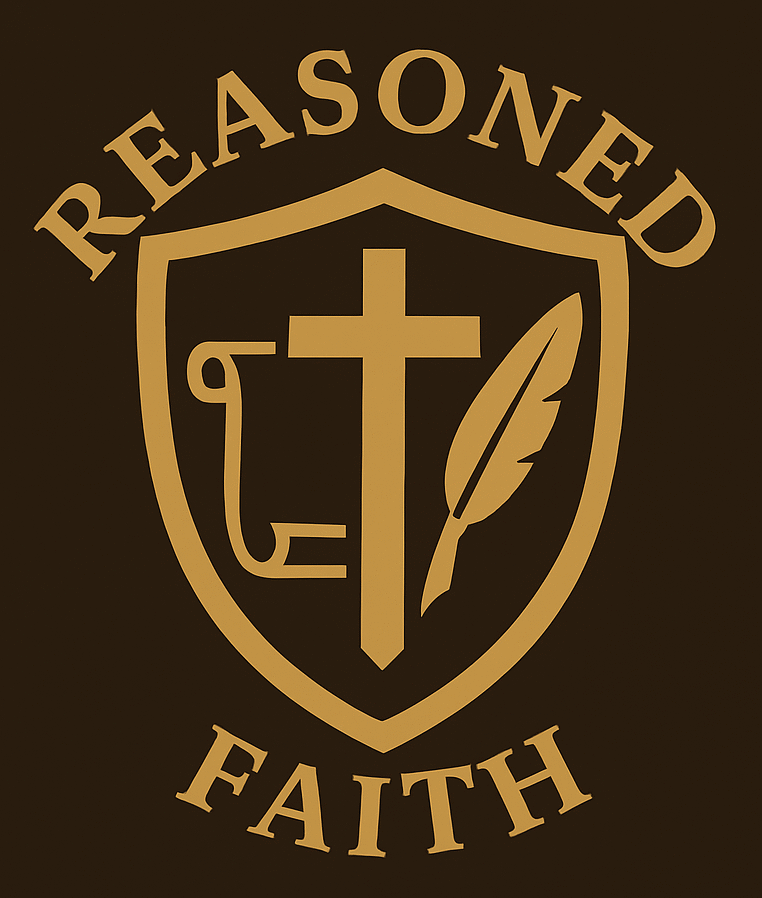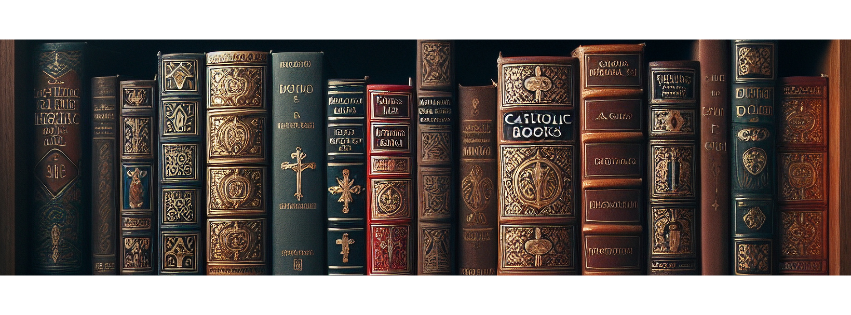
*This post contains affiliate links. If you make a purchase through these links, I may earn a commission at no extra cost to you.
I’m going to kick things off by exploring the transformative role of literature in your spiritual journey. In the Catholic tradition, books are much more than ink on paper; they’re conduits of spiritual wisdom and lived experiences that bridge the gap between the divine and the everyday.
If you’re on a quest for spiritual growth, you’re in good company. For centuries, Catholics have turned to sacred texts to find guidance, consolation, and inspiration. This isn’t just about learning; it’s also about experiencing an inner transformation that comes from engaging with profound religious insights.
Today, I’m going to be talking about Catholic books—those penned by saints, scholars, and modern spiritual leaders—that nurture the soul and bolster faith. You’re going to find out about tomes that have stood the test of time, as well as contemporary works that connect timeless truths to the modern world.
But before we get into the specific titles, it’s important to understand why these books matter. Delving into spiritual literature allows you to reflect on your beliefs, challenge your perspectives, and deepen your understanding of Catholic teachings. As we turn the page to the next section, I’ll introduce you to foundational books that have the power to ignite your faith and inform your practice.
Foundational Books for Deepening Catholic Faith
You’re going to find out about key texts that are cornerstones in the library of any Catholic seeking spiritual growth. These aren’t just books; they are companions for your journey in faith, tools for understanding, and sources of divine wisdom.
The Bible is where it all begins. Recognized as the written Word of God, it’s the ultimate guide for Catholics around the world. Whether you’re new to the faith or seeking a deeper connection, reading the Bible is essential. Each scripture from Genesis to Revelation is a stepping stone on the path of spiritual discovery.
Next, the Catechism of the Catholic Church plays a pivotal role. It’s your go-to reference for understanding the Church’s teachings on a variety of issues. Think of it as a GPS for navigating Catholic doctrine – essential for anyone who aims to fortify their spiritual knowledge.
If you want to step into the shoes of saints, ‘The Imitation of Christ’ by Thomas a Kempis is a treasure trove of spiritual advice. It’s one of the best-loved books on living a devout life, filled with wisdom on overcoming temptation and focusing on what truly matters—a personal relationship with God.
Another pearl is ‘Story of a Soul’ by Saint Therese of Lisieux. It’s her autobiography that reveals her “Little Way” of approaching life with love and humility. This book is a heartfelt reminder that sainthood isn’t just for those who perform great deeds but also for those who commit to loving God in the simplicity of their everyday lives.
Contemporary Voices: Modern Catholic Authors and Spiritual Mentors
You’re going to find out about the fresh voices that have emerged in Catholic literature. These modern authors offer relevant insights that bridge the gap between timeless truths and the challenges we face in today’s world.
Matthew Kelly’s ‘Rediscover Jesus’ isn’t just another book about Jesus; it’s an invitation to a transformative personal relationship with Him. Kelly prompts readers to reflect on their lives and deepen their understanding of the Gospel.
In ‘The Return of the Prodigal Son’, Henri Nouwen dives into the heart of divine mercy through the parable of the prodigal son. Nouwen’s experience with Rembrandt’s famous painting offers a personal and intimate exploration of forgiveness and unconditional love.
Colleen Carroll Campbell brings us ‘My Sisters the Saints’, where she intertwines her journey with the lives of several saints. This book acknowledges the modern challenges we face, showing how venerable wisdom can guide us through.
It isn’t enough to just read; the insights from these books should inspire action in your faith life. That’s why these works are so valuable—they provide a blueprint for applying spiritual principles in the context of contemporary issues.
Nurturing Your Spiritual Life: Practical Applications and Daily Practices
You’ve been introduced to an array of books that are not just to be read, but to be experienced. Each page, each chapter carries potential for deepening your connection with your faith. But the key to truly transforming those words into stepping stones for spiritual growth lies in how you integrate them into your life.
The ancient practice of Lectio Divina is not just a reading strategy, it’s a way of life. By approaching these texts with reverence, with the intent to listen and respond to God’s voice, you make room for real transformation to occur. It’s a slow, contemplative process that can unlock the profound truths found within these Catholic writings.
But it’s not just about the reading. To nurture your spiritual life, you need to connect the lessons from these pages to your prayer life and incorporate them into the sacred moments of the sacraments. This integration solidifies the teachings and allows for divine insight and personal growth.
If you’re wondering how to start, think about establishing a small daily reading ritual. Choose something that resonates with you, whether that’s a particular book or a kind of spiritual practice. Remember, your first attempt doesn’t need to be your last—you can always adjust your approach down the road.
To guide this journey, consider drafting a spiritual reading plan. Tailor it to your schedule, your current spiritual season, and the specific areas of your life where you seek wisdom and growth. And remember, you don’t have to do it alone. Sharing insights with a spiritual director or a reading group can add depth to your experience.
I really hope that the books discussed here serve as faithful companions on your path to spiritual depth. Happy reading, and may your journey be as enriching as the literature that accompanies it.


Hi
Thanks for sharing the article. I just need to ask few questions.”Which of these foundational or contemporary Catholic books has had the most profound impact on your spiritual journey, and how has it influenced your faith or daily life?”
“Are there any Catholic spiritual books that address modern social and ethical issues?”
“Do you prefer reading these books in a quiet, contemplative setting, or do you find group discussions more beneficial?”
Looking forward to hearing from you soon.
Keep up the good work.
Regards,
Saba
Hello! I appreciate your thoughtful questions. 😊 Let’s dive in!
The Bible: Undoubtedly, the Bible is foundational for us as Catholics. Each book within it serves as a steppingstone on the path of spiritual discovery. From Genesis to Revelation, it reveals God’s love, wisdom, and plan for humanity. Personally, the Psalms have deeply impacted my prayer life, reminding me of God’s faithfulness even in challenging times.The Catechism: Our go-to reference! The Catechism of the Catholic Church provides clear explanations of our beliefs, sacraments, and moral teachings. It’s like a spiritual GPS, guiding us through life’s twists and turns. Whenever I have questions, I turn to the Catechism—it’s a treasure trove of wisdom.“The Imitation of Christ” by Thomas Kempis: This classic work offers practical insights on following Christ. Kempis encourages us to imitate Jesus in humility, patience, and love. Reading it feels like sitting at the feet of a wise mentor. It has influenced my daily choices, nudging me toward greater holiness.“Rediscover Jesus” by Matthew Kelly: A contemporary gem! Kelly invites us to encounter Jesus anew, not as a distant figure but as a personal friend. His relatable stories and reflections resonate with modern hearts. I’ve found solace and inspiration in its pages during challenging seasons.
I think of the following books as delving into modern social and ethical issues: Modern Catholic Social Teaching, The Challenge and Spirituality of Catholic Teaching, and Catholic Social Teaching Collection.
As for reading preferences, I lean toward quiet, contemplative settings. There’s something sacred about immersing oneself in prayer and reflection while surrounded by silence. However, group discussions can also deepen understanding—sharing insights with others sparks fresh perspectives.
May your spiritual journey continue to flourish! 🙏✨ Feel free to share more thoughts or ask anything else. Blessings! 🌟